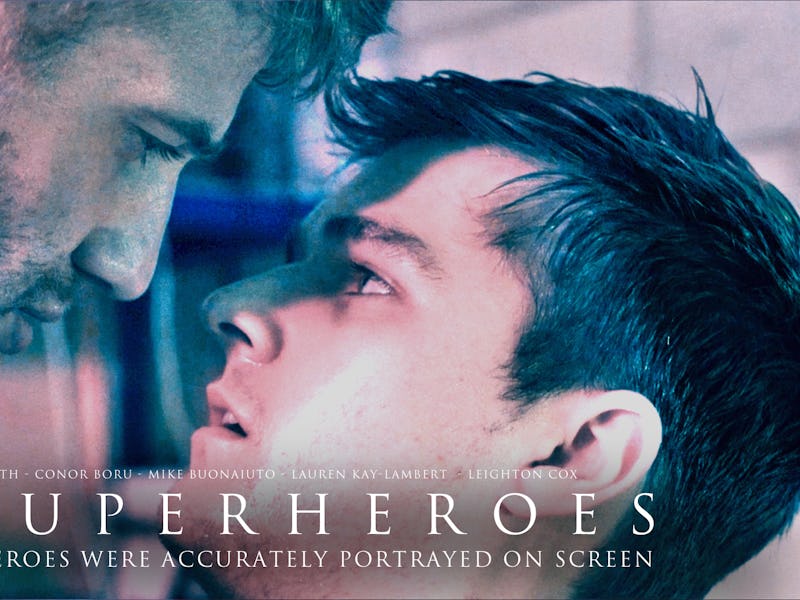#LGBTSuperheroes Trailer Challenges Studios At Comic Con To Include LGBT Heroes
In the big worlds of superhero films, LGBT characters are conspicuously absent. That needs to change.

Superhero movies are big. They take place in big universes, have big casts full of heroes, and their budgets and bottom lines certainly aren’t small either. But in the gargantuan world of superhero movies, there’s something that’s conspicuously absent: LGBTQ characters.
We’ve talked the representation problem in superhero films with #GiveCaptainAmericaABoyfriend, but today, Shape History launched a trailer in partnership with MCM Comic Con calling for more LGBTQ superheroes in comic-book films. Pointing specifically at the mysterious de-sexualization or hetero-fying of LGBTQ characters like Iceman, Mystique and Catwoman.
Though representation is steadily improving, superhero films are still way, way behind when it comes to LGBTQ visibility. Though they’re certainly not alone, joined by the vast majority of blockbuster films in the race for worst LGBT representation, superhero films seem to be going out of their way to keep queer characters off of the big screen by making queer comic book characters straight – or, at least, decidedly not queer.
The trailer shows us a version of what accurate depictions of LGBTQ superheroes might look like. In a behind-the-scenes video, director Mike Buonaiuto points out that the way in which masculinity is portrayed in superhero films is becoming terribly one-dimensional, which is not only limiting, but damaging for LGBTQ people who don’t see themselves represented in film or television anywhere near often enough.
“We hope that we can demonstrate to the studios that there is a huge audience for accurate LGBT portrayal on the big screen,” says Buonaiuto, “and it won’t deter cinema-goers to buy tickets.”
Along with the trailer, Shape History has an #LGBTSuperheroes pledge, which challenges studios to be more inclusionary and to stop changing the identities of LGBTQ characters in films.
Representation isn’t just a buzzword that we use to talk about films that are all starting to look, sound and feel the same — it’s a deeply important part of our culture. Seeing characters that we can identify with in stories is a vital part of our experience with popular culture, and those characters are often very influential in shaping our understanding of ourselves and our world. To be left out of films (particularly in ways that are as intentional as the exclusion that comes from some superhero films) is to be sent a very clear message: you’re not a part of this world or this story.
It’s time for something to change in the superhero film paradigm, and #LGBTSuperheroes trailer and pledge represent a few steps in the right direction.